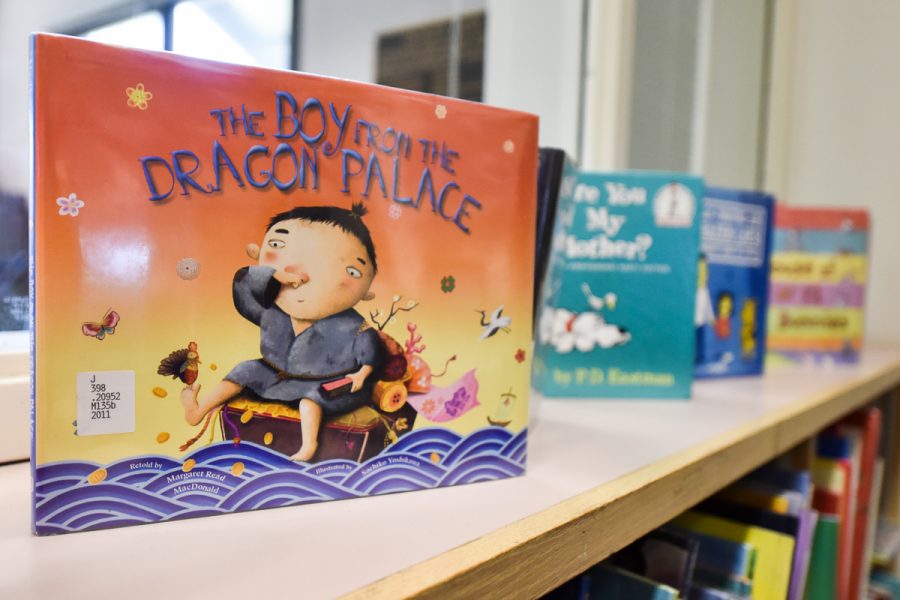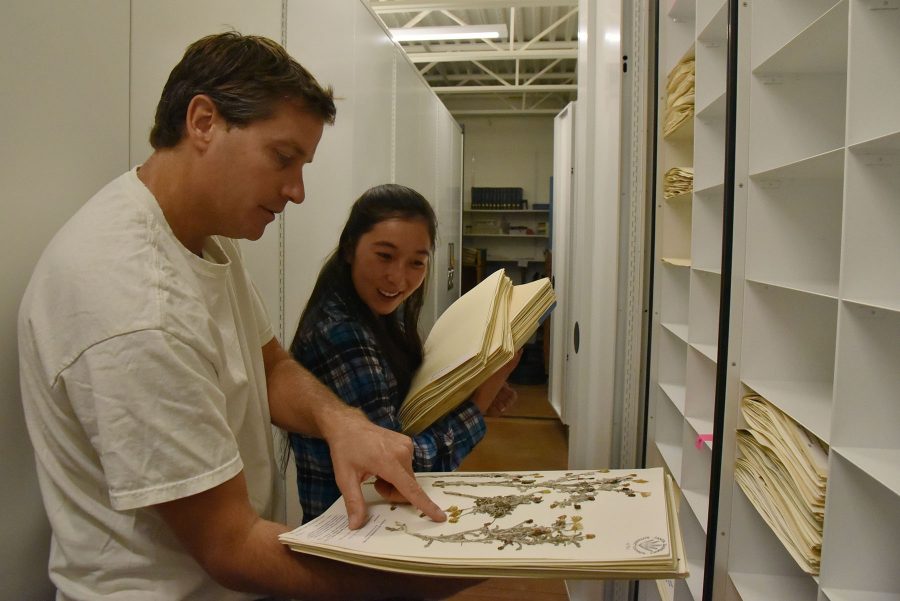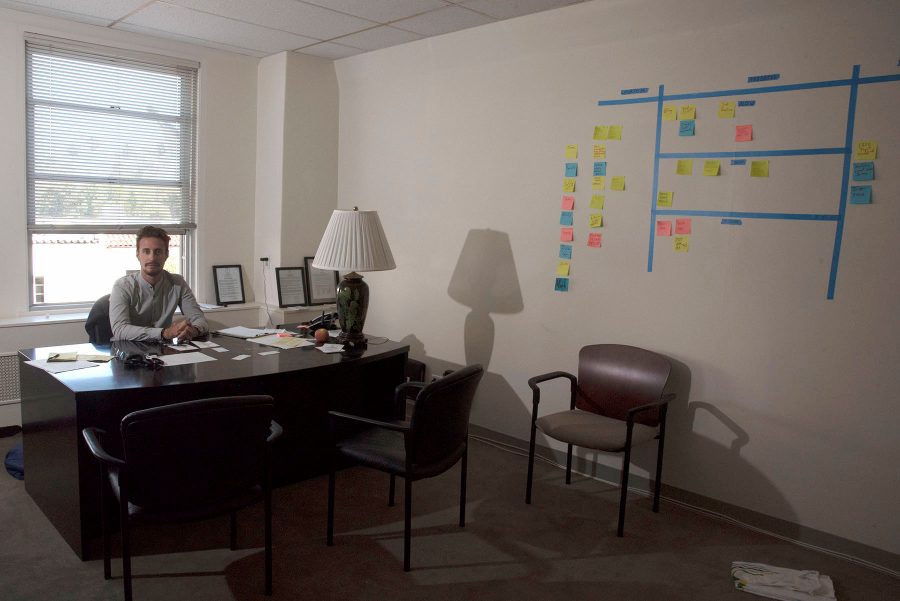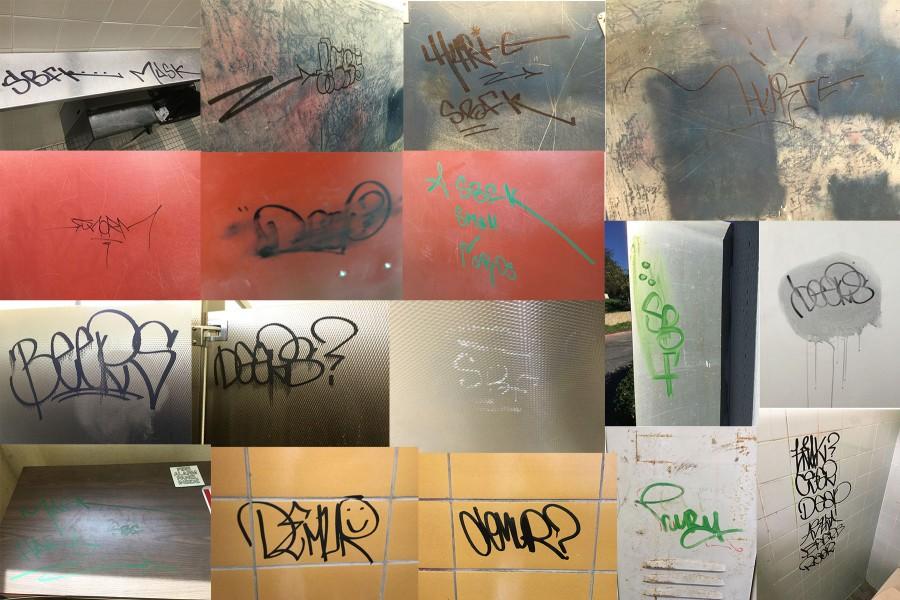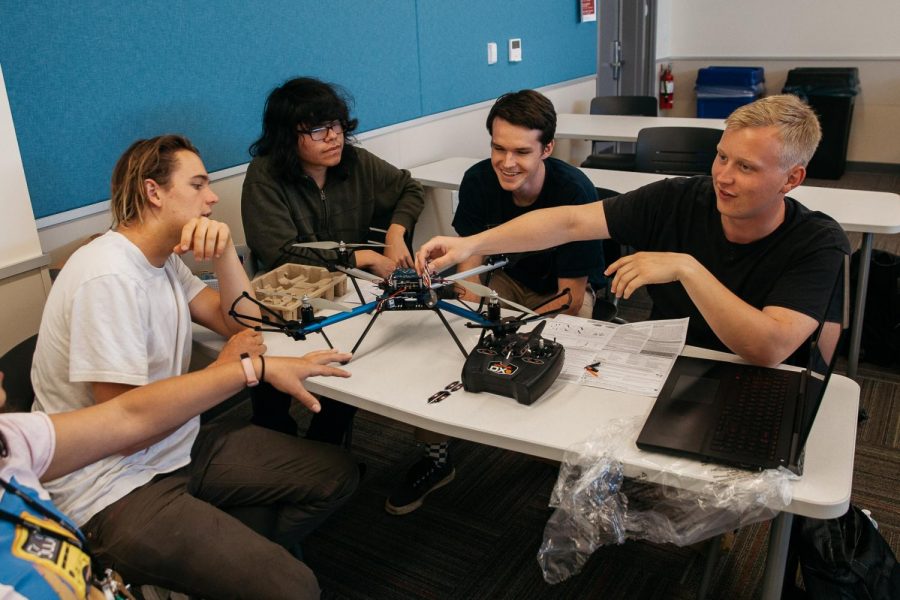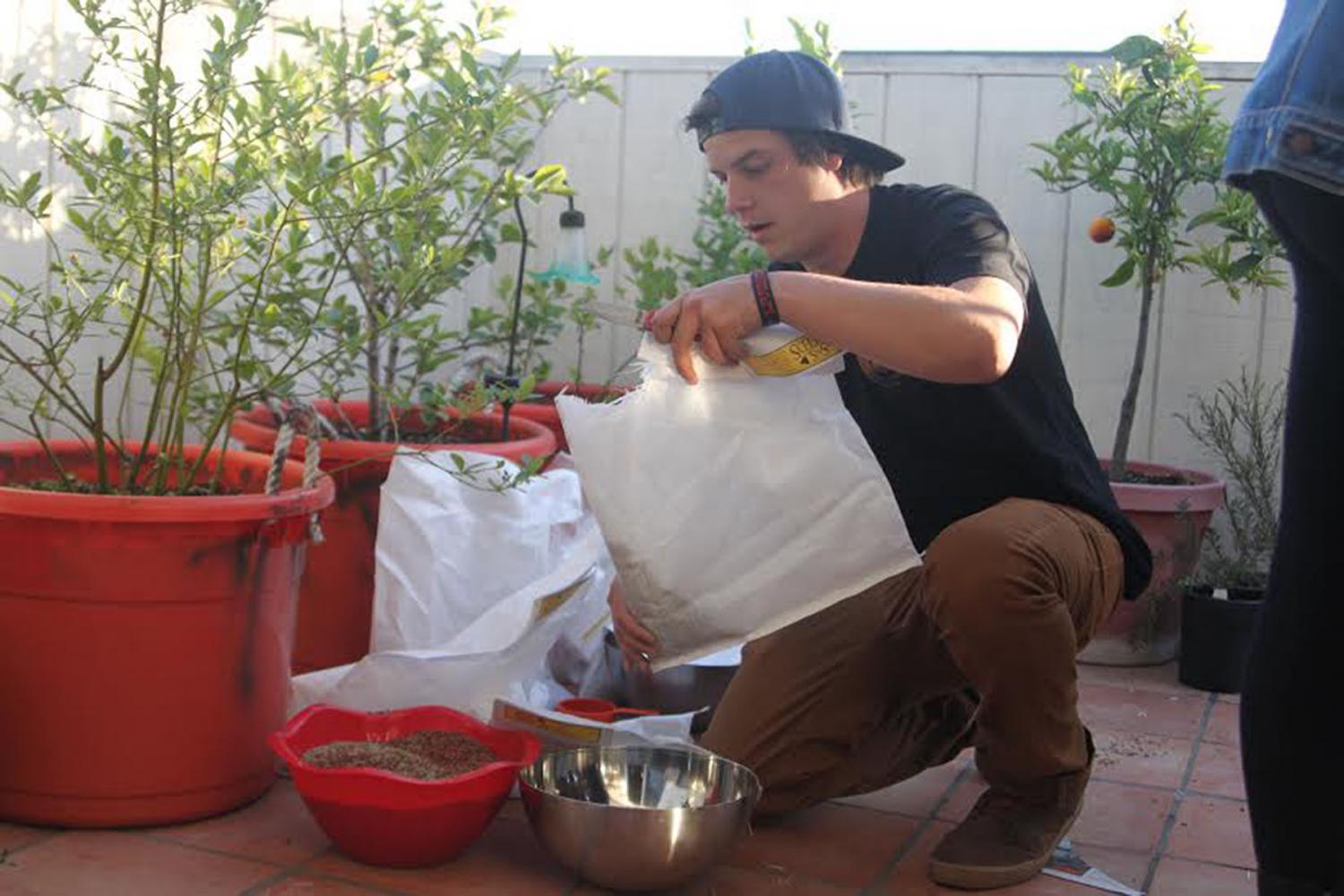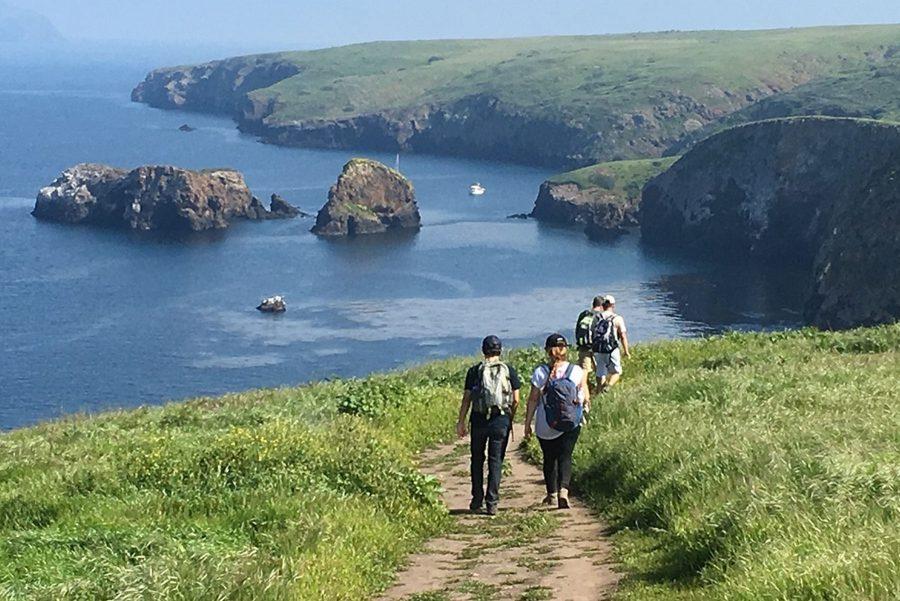Inspired by a non-fiction novel, City College students formed a club aimed at providing loans to women in South and Central America to start their own businesses and avoid migration to the U.S.
Kensey Daly, president of the club SBCC Students for Sustainable Communities, said the club was created after her English 110 class read the book “Enrique’s Journey: The Story of a Boy’s Dangerous Odyssey to Reunite with his Mother.”
The book, a true story written by Los Angeles Times reporter Sonia Nazario, is about Enrique, a Honduran boy who, after 11 years of not seeing his mother, decides to train-hop to the United States in an attempt to find her. Nazario went along for the ride.
“It was interesting because most of what we hear about illegal immigrants comes from the media and they’re mostly spoken of as economic numbers,” Daly said. “But this book really showed another light.”
According to the book, an estimated 48,000 children from Mexico, South and Central America enter the United States alone and illegally each year-most of them trying to reunite with a parent.
Children like Enrique train-hop through Mexico and become vulnerable to smugglers, police, gangs, and the dangers of fast-paced trains.
Daly said the club will send microloans to single mothers in South and Central America to help them thrive in their own countries and lift the pressures of venturing north.
“We want to raise money so we can help them start their own businesses down there, so they don’t have to make that journey up here,” Daly said.
Most of the immigrants coming to the United States today are single mothers, she said. But when these mothers don’t realize the costs of living here and have trouble saving enough money, they end up abandoning their children.
Daly said the club will likely seek the help of Kiva, an organization that promotes global entrepreneurship through microfinance. The club, through Kiva, can look at profiles of women in South and Central America who have ideas for their own business.
The microloan, Daly said, will be given to a woman the club chooses. The microloans will provide money to the particular woman, and after she begins to earn a profit, with 1% interest, the dollar amount loaned will be given back to the club, where they will choose another woman to finance.
Daly said the club will raise money through car washes, bake sales, and other fundraisers.
Jolie Noveski, vice president and treasurer of the club, said her inspiration for getting involved came from hearing Nazario speak about the book during a lecture at UCSB.
“When I heard Sonia Nazario speak, it was like a completely different story that she personally went through herself, watching the people and going through the actual actions of what all these other people go through,” Noveski said.
Daly and Noveski weren’t the only students moved by the book.
Diane Rodriguez-Kiino, director of campus diversity, said students in her early childhood education class, Teaching in a Diverse Society, have started a book club based on discussions about “Enrique’s Journey.”
Although she hadn’t previously heard about the Sustainable Communities club, its creation along with her students’ club is a sign that the book is sparking social change around campus, Rodriguez-Kiino said.
“I think social change happens at all levels,” she said. “These are more like underground movements that are happening among students that I think is fantastic, and obviously the book has sparked this sense of urgency which is again, fantastic.”
She also said even though her students are required to read the book for class, the book is educating them on important societal issues.
“It’s definitely opening their eyes and enlightening them on this issue,” Rodriguez-Kiino said. “They have the potential to become more effective and in-tune educators because they recognize that these families are coming from all different areas and impoverished communities.”
Joe Martorana, a political science instructor who spoke at Luria Library’s discussion of the book, said conversation about the book is proof that some form of social change is occurring.
“The fact that we are having a conversation about these issues in an intelligent, thoughtful and reasoned fashion is in itself an improvement over the usual finger-pointing that oftentimes occurs,” Martorana said.
And though the book isn’t a specific study of immigration, it reveals many of the underlying problems, Martorana said.
“Oftentimes in the political arena, it’s easy to point fingers at undocumented workers…they’re a convenient scapegoat,” Martorana said. “It’s much easier for a politician to blame illegal immigrants rather than discuss issues associated with oppression in other countries.”
And even with immigration reform as a current hot topic, Daly and Noveski said their club is neither pro- nor anti-illegal immigration.
“We’re really just trying to ease the suffering for the migrants,” Daly said.
The Sustainable Communities Club will have its first bake sale from 9 a.m. to 2 p.m. on April 14 across from the Luria Library.


